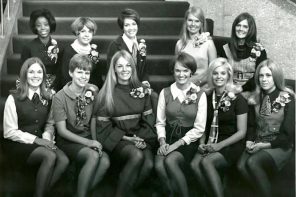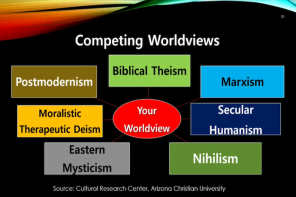Whenever gay and lesbian people exercise the temerity to be treated like real human beings, to have equal employment in the private sector as well as in the military, the right wing religious reaction is always the same — should they “obey God or obey men.”
In the military, the answer is quite clear: they are to obey military code, period. Otherwise, they won’t remain military chaplains for long. If President Obama makes good on his promise to repeal Don’t Ask, Don’t Tell, a group of conservative Christian chaplains expressed their fear in a letter to the president and Defense Secretary Robert Gates that they’ll “face a reduction in the free exercise of their faith.”
The chaplains use the letter to lodge a litany of complaints about how they’ll be forced to compromise their beliefs, how they will have to work with gay people, counsel gay people, and perhaps even conduct a service with gay or lesbian clergy. All of this, they say, means they’ll have to condone something they sincerely feel is sinful. I’m certain that the same arguments were made when the armed forces were integrated. Chaplains then — some who fully believed that simply being black was a sinful state — had to work with black people, counsel black people, and perhaps even conduct a worship service with black clergy.
Same angst, different decade.
The chaplains complaints are unfounded according to another group of military chaplains who came out in favor of repealing DADT last November:
Military chaplains are duty bound to provide pastoral counseling to all service members, even those of another faith or no faith at all. To refuse counseling to any service member, for any reason, would be a breach of that duty and would require an appropriate command action.
So, yes, when you’re in the military, the military code trumps all: chaplains are bound to serve all members of the military whether they like them or not. As Interfaith Alliance President Welton Gaddy points out, they are to practice Jesus’ command to love everyone:
Jesus said we are to love other people as he loved us — the love of Jesus was inclusive beyond measure and graceful beyond imagination. The views expressed by the chaplains are the antithesis of the themes of love and inclusion commended and demonstrated by the Christ from whom they form their religious identity. If Christian chaplains followed the teachings of Jesus they would have no problem joining any military member in prayer or spiritual thought.
Still, the chaplains protest that “By raising homosexual behavior to the same protected class as innate, innocuous characteristics like race and gender, the armed forces will cast the sincerely held religious beliefs of many chaplains and Service members as rank bigotry comparable to racism.”
On this point they are absolutely right. You see, back when blacks were being integrated into the military their race was not an “innocuous characteristic;” it was seen as many military chaplains as an outright sin, and their preaching against it would be seen as “rank bigotry.” This is the same thing — and those who would refuse to minister to gay and lesbian service members or who would preach against them as sick or sinful would, indeed, be exercising “rank bigotry.” And that should never be tolerated in our armed forces.




